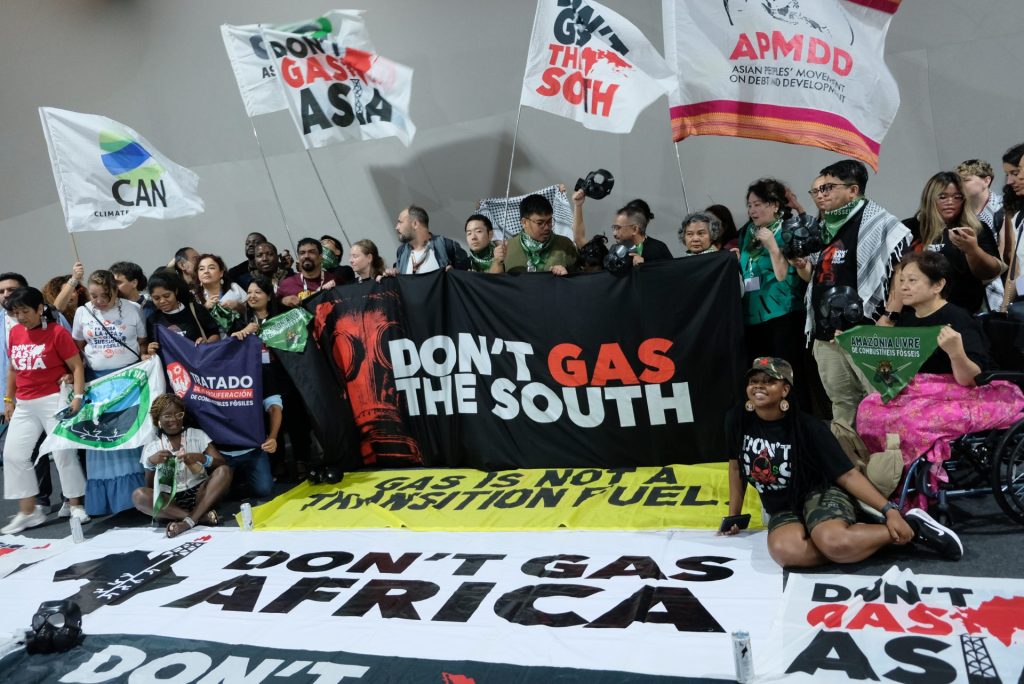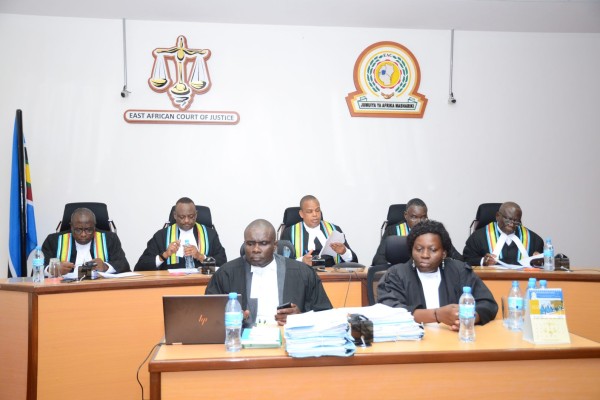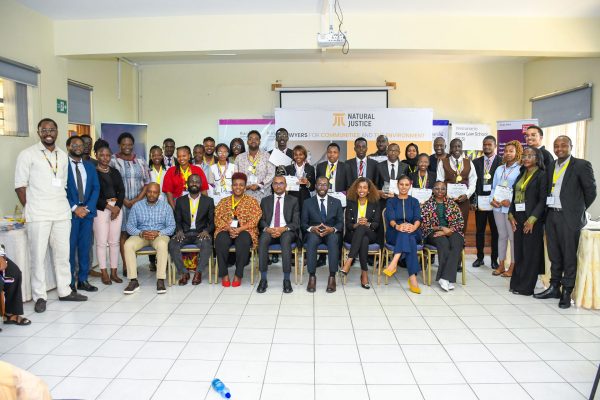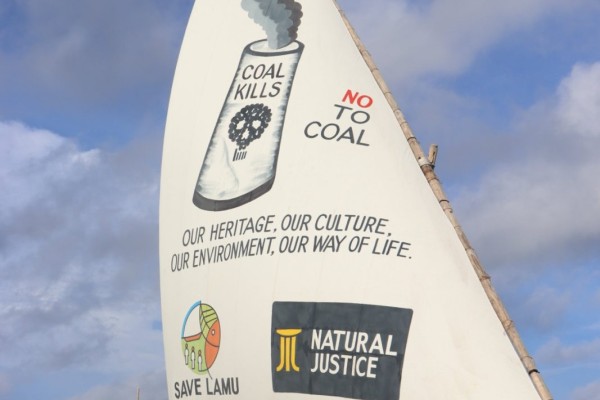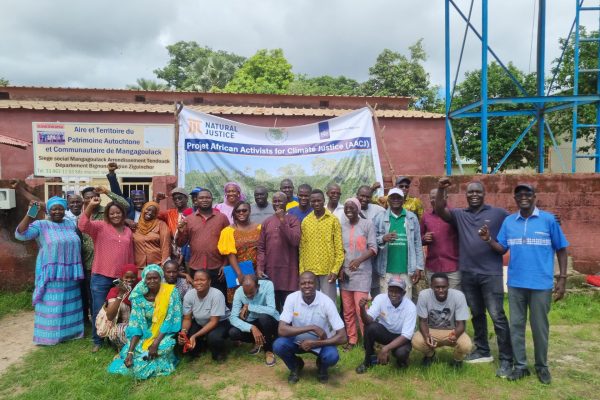Belem, 21 November 2025: After two weeks of tense negotiations in Belem, Brazil, the UNFCCC COP30 came to a disappointing close today with states failing to live up to this year’s promise as being the “implementation COP”. As this critical decade to address climate change closes in, states’ feeble attempts to address a global crisis spell disaster for Africa, the Global South and Indigenous Peoples and defenders living on the front lines.
Ripples from Baku, where COP29 took place, have left this year’s major negotiating tracks – Adaptation, Just Transition and the Gender Action Plan (GAP) – stranded: Implementation is impossible without finance. COP29’s failure to secure adequate climate finance through the New Collective Quantified Goal (NCQG) left global south countries in the lurch, with no means to fulfil their obligations under the Paris Climate Agreement.
Belem Gender Action Plan
Ahead of the GAP negotiations, Natural Justice launched a new report on the situation of African Women Environmental Human Rights Defenders (WEHRDs) showing the steep cost women pay for their activism to safeguard our climate and the environment. Gender based and sexual violence are used to silence their voices, punish their resistance and discredit their leadership.
The Gender negotiations were missing from the Presidency’s list of priority issues and negotiations saw states rolling back already agreed upon language on gender and human rights throughout the negotiation rooms. The adopted Belem Gender Action Plan, although mentioning WEHRDs’ realities, and the need to establish safeguards and protections, falls short by eroding progressive language on women’s rights and gender responsive climate action.
“The explicit mention of women environmental defenders in the Belém Gender Action Plan is a small but progressive step in the collective fight for the recognition of women environmental human rights defenders as key actors in climate action.
This would be the first time ever, in the history of these negotiations, that environmental defenders would be referenced under the UNFCCC. While the removal of human rights language remains concerning, reference to women environmental defenders within the framework is critical and offers renewed hope.
We hope, however, that the reference to women environmental defenders does not become yet another tokenistic exercise. Instead, it should serve as a precursor to stronger, coordinated efforts to protect women environmental human rights defenders—reflected through gender-responsive climate finance and their meaningful participation in climate policy and decision-making processes.” – Tawonga Chihana, Lead of NJ’s African Environmental Defenders Initiative.
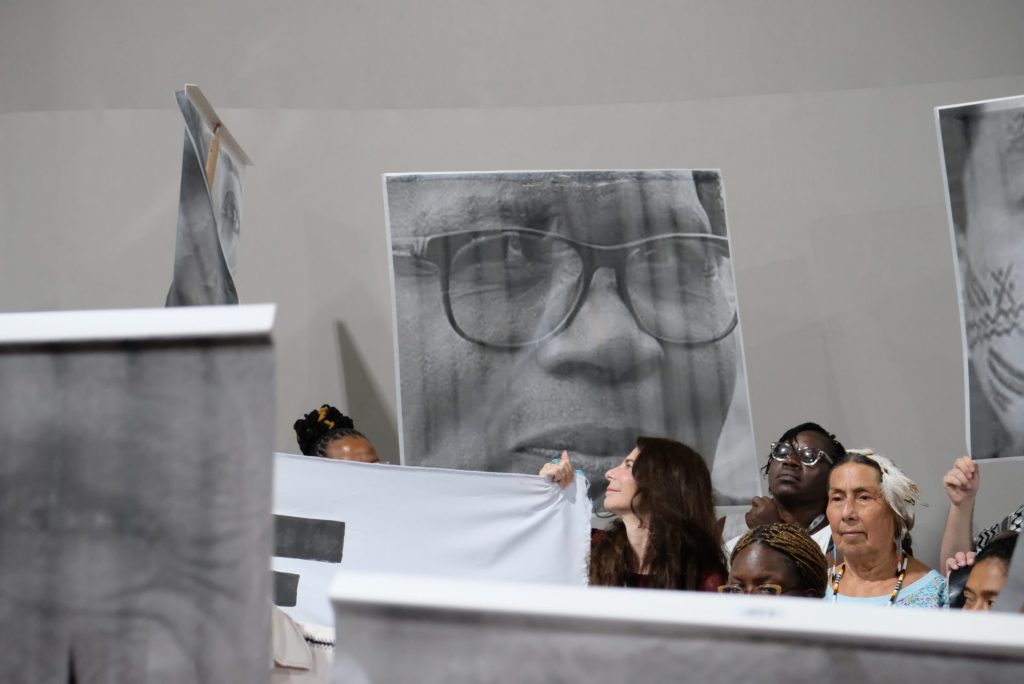
Just Transition Work Programme
Despite calls from developing countries and civil society for parties to agree on a Belém Action Mechanism under the Just Transition Work Programme, Global North countries have consistently resisted a new action mechanism.
Disregarding the foundational principles of the Paris Accords – equity, historical responsible and common but differentiation responsibilities – developed and rich nations, most responsible for the climate crisis refuse to fulfil their legal obligations under the climate convention and those cited in the recent ICJ Advisory opinion on states obligations in the context of climate change.
“The Just Transition Work Programme text finally adopted is welcomed and a step forward. The recognition of the mechanism for just transitions is a really positive aspect. However, there has been watering down or complete removal on issues relating to fossil fuel subsidies, or recognising socio-economic opportunities that would be associated with transitioning away from fossil fuels in a just, orderly and equitable manner.
There should have been a stronger emphasis on gender and human rights-based approaches and the linkage of critical minerals to clean energy technologies. For Indigenous People and communities in the global south, this lack of recognition ignores the burden placed on them for energy transitions.
On a positive note, the noting of the importance of free, prior, and informed consent for Indigenous People is included – with the importance of broad and meaningful participation of all stakeholders, which includes Indigenous Peoples and local communities, for inclusive and participatory just transition pathways. These speak to fundamental principles of energy justice.
Now, we need action! We need implementation. If not, we will be in the same position as we have been for two years, with more discussions and little movement. While no action is taken, countries are moving forward with energy plans that either have fossil fuels being pushed under the guise of transition fuels or ‘clean’ energy deployment with supply chains that repeat the past environmental and human rights impacts.” – Lauren Nel, Just Energy Transition Lead
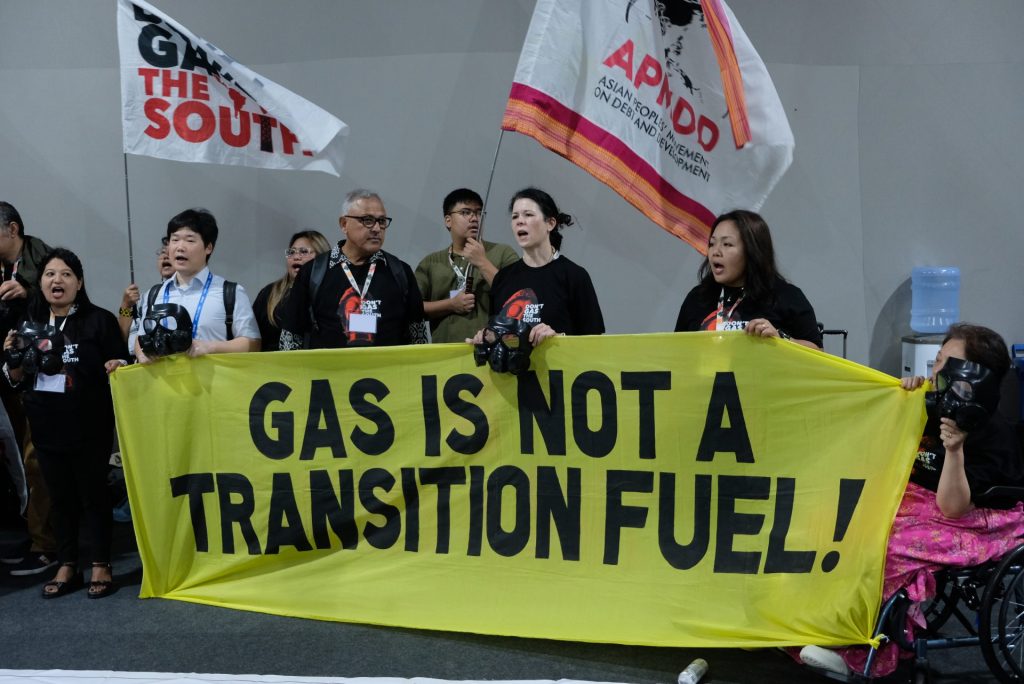
Adaptation with little finance
Negotiations on the Global Goal on Adaptation (GGA) got off to a good start but stalled on the issue of adaptation financing and developing countries’ demand to triple funding by 2030. It is disappointing to see that no clear financial commitments have been made (just a general invitation to contribute) and that financing remains the major issue for the GGA. Achieving the GGA indicators depends on capacity building and the mobilization of technological and financial resources.
“It is imperative that the decision on the GGA be clear that developed countries must provide the means to developing countries in accordance with the UNFCCC and the Paris Agreement, and that developing countries, particularly African countries should not have to bear the costs of the GGA through their national budgets. Finally, the GGA should be linked to accountability and Common but Differentiated Responsibilities.” – Sokhna Die Ka, NJ’s Dakar Hub Director
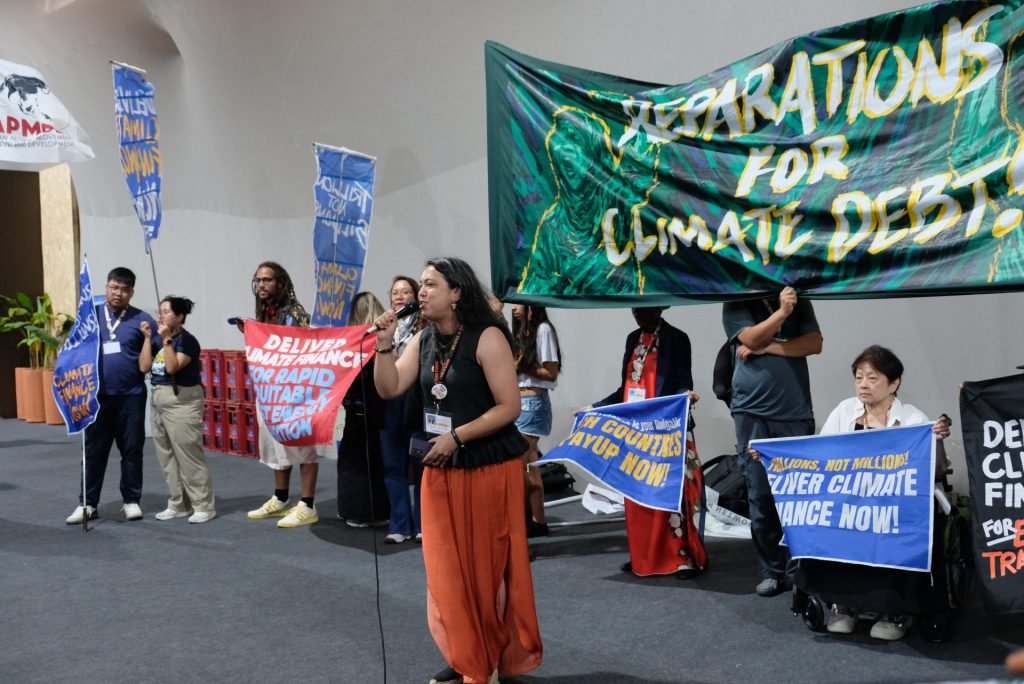
Indigenous peoples and moving forward
Brazil’s President Lula Da Silva dubbed this year’s climate talks the “COP of Truth” but COP30 saw record numbers of big agriculture, fossil fuel and carbon capture and storage lobbyists taking part in the climate talks, greenwashing, false solutions, limiting ambition and diluting human rights language, particularly under Article 6 on market-based solutions.
“It has been a difficult and spatially contested COP. Last week, Indigenous peoples and supporters broke through the venue barriers to call attention to their lack of participation in the negotiations. Despite COP30 being in the Amazon forest and adjacent to the Amazon River, the voices of the Indigenous peoples have not been prioritised. The space became heavily militarised and the UNFCC’s call for further security measures raised the ire of activists.
Many actions throughout the conference brought to light important issues such as equitable and accessible climate finance in line with a USD1.3 trillion mark. African activists highlighted the importance of a Just Energy Transition and financial mechanisms to achieve this, without global south countries going into further debt.
Loss and damage was a hot topic amongst activists, as many countries are using their own dwindling resources to rebuild their cities after devastating storms, hurricanes and floods. Just recently, the Philippines and the Caribbean islands suffered damage from a super typhoon and hurricane respectively.
There is a very important issue at play in Africa, which is the devastation of critical mineral mining, and the environmental and human rights abuses that are occuring in places like Zimbabwe, the DRC, South Africa and elsewhere. This issue was not sufficiently highlighted in the text, despite numerous side event discussions and a push from global south countries. Without adequate acknowledgement and protection for communities, we will see more devastation in the name of renewable energy, with adjacent communities worse off.
Again, we have seen the COP space dominated by fossil fuel and agricultural interests. Again, like previous COPs, some progress has been made, but not enough. Any grand ideas we might have held have been quietly deflated over the last two weeks.” – Claire Martens, NJ’s Communications and Media Coordinator.
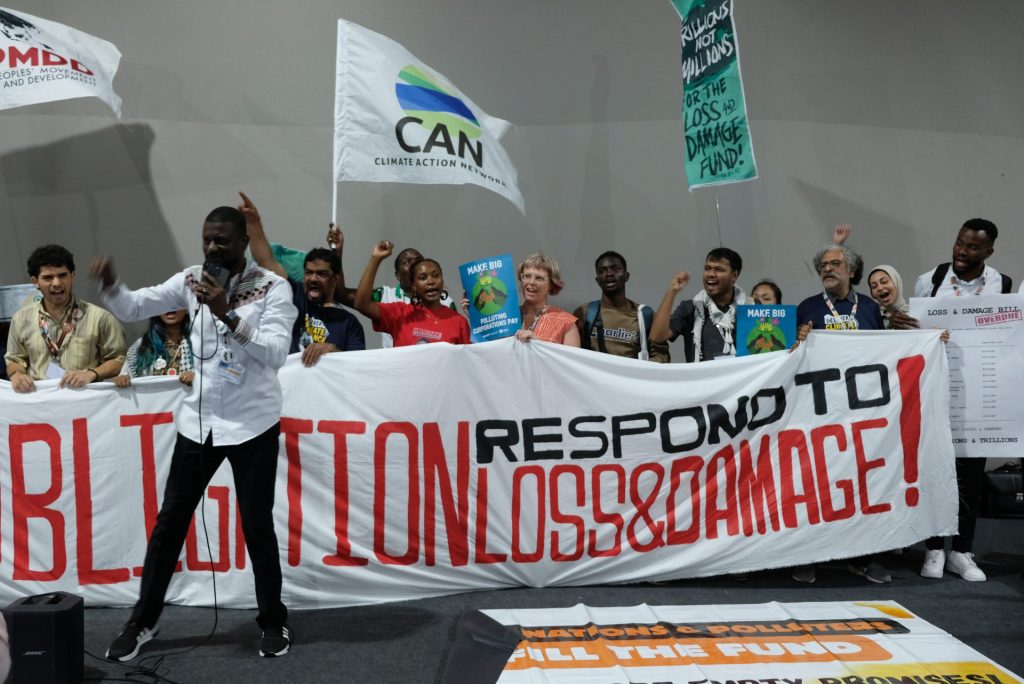
The failure of COP30 to fund and advance climate justice reaffirms why civil society organisations are calling for the reform of UNFCCC process. Not only did the UNFCCC urge Brazil to escalate security forces after the Indigenous Peoples’ protest, but this process has allowed corporates and fossil fuel companies—who are driving human rights and environmental crises and accelerating climate emergency—to hamstring urgent climate action.
“We need a peoples’ multilateralism built of equity, equality, and solidarity, one that holds human rights law supreme, delivers reparations and justice, and safeguards all peoples and our planet. Without human rights, there is no climate justice!” – Katherine Robinson, NJ’s Head of Policy and Advocacy.
Ends
Notes:

